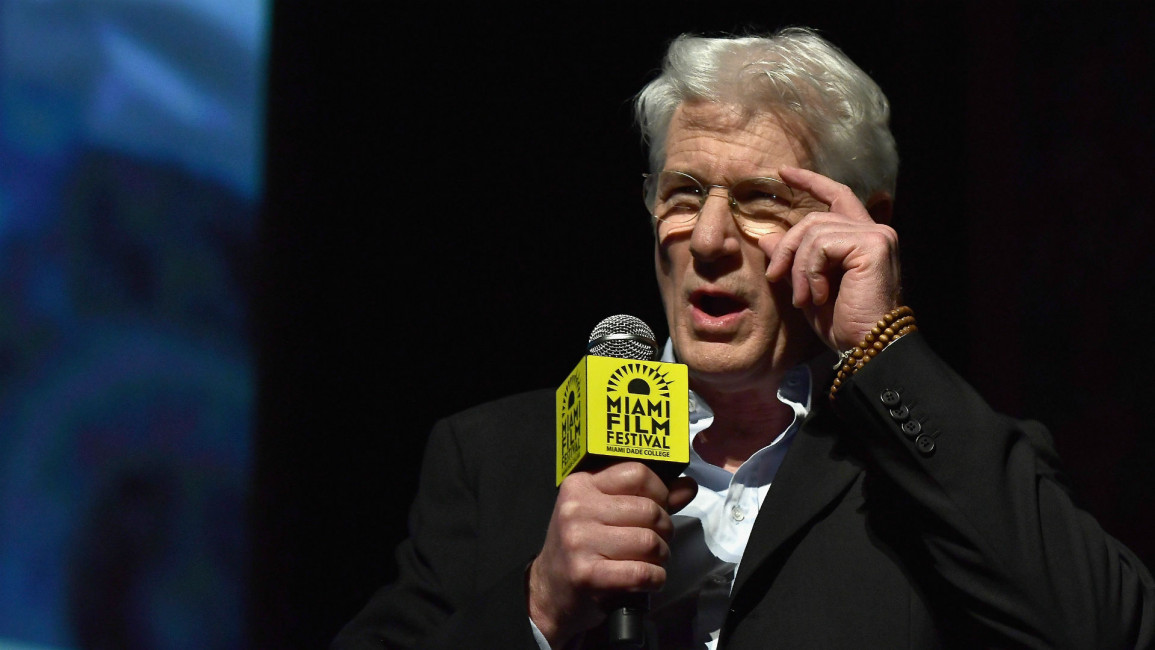
Hollywood star Richard Gere slams Israeli settlements as 'provocation'
US actor Richard Gere has slammed Israel's occupation of Palestinian land and continued building of settlements in the West Bank while on a trip to the country.
"Obviously this occupation is destroying everyone," the Pretty Women star told Haaretz during his two-day visit to Israel for the local premiere of Norman: The Moderate Rise and Tragic Fall of a New York Fixer. "There's no defence of this occupation."
His strongest criticism was reserved for the settlement programme, which has played a key role in stalling peace talks between Israel and the Palestinians.
"Settlements are such an absurd provocation and, certainly in the international sense, completely illegal — and they are certainly not part of the programme of someone who wants a genuine peace process," Gere said.
"Just to be clear about this: I denounce violence on all sides of this. And, of course, Israelis should feel secure. But Palestinians should not feel desperate."
Over 600,000 Israelis live in around 140 settlements that were constructed after Israel occupied the West Bank and East Jerusalem in 1967.
Israel's continued building of settlements strongly strained relations with the US in the last days of Barack Obama's presidency, which saw the UN pass a resolution against the settlement programme.
Settlement activity increased after the inauguration of US President Donald Trump, whose administration is perceived as friendlier to Israeli designs on Palestinian land.
Last month, Israel's parliament passed a controversial law legalising around 4,000 settler homes built on Palestinian land.
Gere, who has been to Israel before, described his most recent trip as "more complex" than any of his previous travels to the Middle Eastern country.
"I had people on all sides — those who have been close friends and people I barely knew — telling me not to come," he said. "I had people living here who told me, 'Look, no good will come of this. The bad guys will use you' — 'bad guys' meaning the policy-makers of this government. It was a complex month of going back and forth: 'I'm coming....; I'm not coming.'"


![President Pezeshkian has denounced Israel's attacks on Lebanon [Getty]](/sites/default/files/styles/image_684x385/public/2173482924.jpeg?h=a5f2f23a&itok=q3evVtko)



 Follow the Middle East's top stories in English at The New Arab on Google News
Follow the Middle East's top stories in English at The New Arab on Google News


